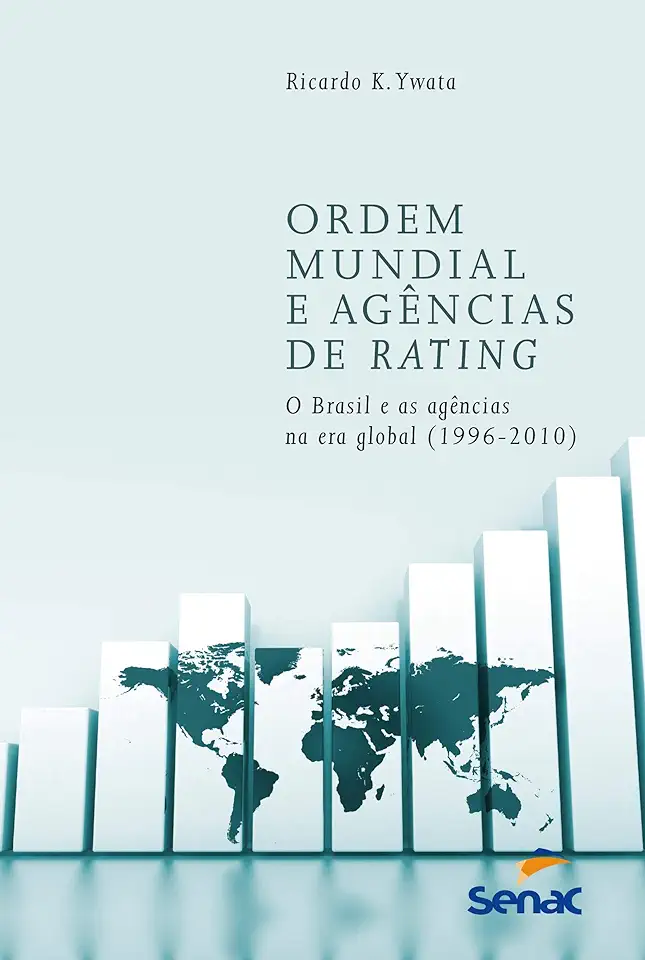
World Order and Rating Agencies - Ricardo K. Ywata
World Order and Rating Agencies: A Critical Perspective
Introduction
In "World Order and Rating Agencies," Ricardo K. Ywata offers a critical examination of the role of credit rating agencies (CRAs) in the global financial system. Ywata argues that CRAs play a crucial role in shaping the world order by influencing the flow of capital and shaping the perceptions of investors and policymakers. However, he also highlights the inherent biases and conflicts of interest that undermine the credibility and effectiveness of CRAs.
The Power of Credit Rating Agencies
Credit rating agencies play a pivotal role in the global financial system by assessing the creditworthiness of governments, corporations, and other entities. Their ratings are used by investors, lenders, and policymakers to make decisions about lending, investing, and regulating financial markets. Ywata argues that CRAs have become increasingly powerful in recent decades, as their ratings have become essential for accessing capital markets and shaping market perceptions.
The Flaws of Credit Rating Agencies
Despite their power and influence, CRAs are not without their flaws. Ywata identifies several key problems with CRAs, including:
- Conflicts of interest: CRAs are paid by the entities they rate, which creates a clear conflict of interest. This can lead to biased ratings that favor the interests of the issuers rather than the accuracy of the assessment.
- Lack of transparency: CRAs are often opaque about their methodologies and criteria for assigning ratings. This lack of transparency makes it difficult for investors and policymakers to assess the accuracy and reliability of their ratings.
- Procyclicality: CRAs tend to be procyclical, meaning that they are more likely to downgrade ratings during economic downturns and upgrade ratings during economic booms. This can exacerbate financial instability and make it more difficult for economies to recover from crises.
The Impact of Credit Rating Agencies on the World Order
Ywata argues that the flaws of CRAs have a significant impact on the world order. By shaping the flow of capital and influencing the perceptions of investors and policymakers, CRAs can affect economic growth, political stability, and the distribution of wealth. For example, downgrades by CRAs can lead to increased borrowing costs for governments and corporations, making it more difficult for them to finance their activities. This can have a negative impact on economic growth and lead to social unrest.
Reforming Credit Rating Agencies
In light of the flaws of CRAs and their impact on the world order, Ywata calls for reforms to improve their credibility and effectiveness. He proposes several reforms, including:
- Increasing transparency: CRAs should be required to be more transparent about their methodologies and criteria for assigning ratings. This would allow investors and policymakers to better assess the accuracy and reliability of their ratings.
- Reducing conflicts of interest: CRAs should be prohibited from accepting payment from the entities they rate. This would eliminate the conflict of interest that can lead to biased ratings.
- Improving regulation: CRAs should be subject to more stringent regulation to ensure that they are accountable for their actions. This would help to prevent them from engaging in unethical or irresponsible behavior.
Conclusion
"World Order and Rating Agencies" is a timely and important book that provides a critical examination of the role of CRAs in the global financial system. Ywata's analysis of the flaws of CRAs and their impact on the world order is persuasive and well-supported by evidence. He offers a number of valuable proposals for reforms that could improve the credibility and effectiveness of CRAs. This book is essential reading for anyone interested in the global financial system and its impact on the world order.